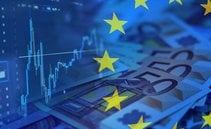After the big rally in the Chinese market in the last month, does it make sense to consider investing in Alibaba (BABA) stock? A look at some data.

China’s expansion of economic policies, combined with Alibaba’s corporate strategies such as share buybacks and dividend payments, are boosting the stock, putting it back under the microscope of analysts. Many say BABA is a cheap stock, but what are the real growth prospects, and what could push the stock higher?
What’s happening to BABA stock?
Alibaba’s stock has attracted a lot of attention in recent weeks, especially after a big name like Michael Burry, famous for anticipating and profiting from the 2007 subprime mortgage crisis, said he was increasing his stake in the company.
This revelation, which emerged from the 13F documents of his company Scion Asset Management in August 2024, had a significant impact on the BABA stock, contributing to a surge in the share price. A little over a month later, the stock has recorded a performance of more than 40%, thus confirming the call of the well-known investor.
Chinese government stimulus and the role of the PBoC
One of the main reasons behind the surge in Alibaba shares is related to China’s economic policies. On September 24, 2024, the People’s Bank of China (PBoC) announced a larger-than-expected economic stimulus package. This package includes increased financing and significant interest rate cuts and is aimed at fueling investor confidence in the Chinese market.
BABA, like many other large Chinese companies, is closely linked to the country’s economic performance. Expanding liquidity and lower interest rates are good for both businesses and consumers, as they stimulate demand and facilitate access to credit, which ultimately supports the stock market.
Share buybacks and dividend policy
In addition to macroeconomic stimulus, Alibaba has taken concrete steps to support its share price. The company has launched a massive share buyback program, which has helped to put constant demand on the stock. During the year 2024, Alibaba has retired 5% of its total outstanding shares.
But that’s not all: Alibaba has also decided to reward its shareholders by introducing a dividend, which it started distributing in early 2024. With a dividend payout ratio of 11.7%, Alibaba’s cash flow seems safe and sustainable. The decision to pay dividends is in line with the logic of incentivizing investors to hold on to the shares and increase confidence in the stock, especially in a period of global economic uncertainty.

- BABA 1W
- Source: Baha.com
Why did Alibaba have to resort to these strategies?
For years, many analysts have highlighted a strange inconsistency between the technical data of the share price and the fundamental data of the company. BABA’s profitability in 2023 was positive, and the outlook for 2024 is equally promising. Alibaba recorded a net operating margin of around 15%, signaling a good level of operating efficiency despite the challenges faced by the second largest economy in the world.
For 2024, the projections indicate a slight expansion in revenues, mainly thanks to diversification in the cloud sector and digital services, two growth areas on which the company has focused to offset any declines in traditional sectors such as e-commerce. However, on the stock market, the stock has lost about 65% from its all-time highs. The actions and strategies undertaken by Alibaba aim to fill this gap, probably due to a strong lack of confidence on the part of investors.
Original article published on Money.it Italy 2024-10-03 07:22:00. Original title: Analisi azioni BABA: è un buon momento per comprare?





